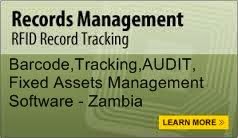I am compelled to write on what I term the gross misuse of source accounting documents by some small and medium Enterprises (SMEs).
It pains me to go in a business entity, make a cash purchase and the accounting source document you are given as proof of the purchase, is a document called tax invoice with a paid stamp on it.
This trend is common among businesses especially in the supply business. Sometimes I wonder if these businesses do engage well trained accountants who should be able to advise management the proper usage of accounting source documents such as a tax invoice.
Honestly speaking how can a tax invoice bear two names at the same time? On the far corner it is written a tax invoice while at the other end it bears a receipt name.
Although the Zambia Revenue Authority (ZRA) administration of value added tax (VAT) entails that its determination is based on the tax invoices especially to the supplying businesses, it has not changed the meaning of the definition of an invoice.
I say so because these problems of misuse of source documents are emanating from the misunderstanding of the use of the tax invoice as demanded by ZRA.
Let the entrepreneurs know that the description of an invoice remains the same whether it is disguised as a tax invoice by ZRA or not.
An invoice is a source accounting document that is issued by the supplier to a customer who obtains goods or services on credit and promises to settle a payment at a later date.
Therefore it is not in order for a supplier to issue an invoice to a customer who makes a prompt cash payment.
However in this article I want to trace why some suppliers are issuing tax invoices in place of a receipt because a source document which is issued for prompt payments, is a receipt.
This is so because VAT is driven by invoices and its calculation is based on the issuance and retention of tax invoices when calculating it.
Therefore the law requires the retention of tax invoices and other tax records for the period of not less than six years from the time they are issued.
The tax invoice is an invoice which is designed by the tax office to suite its requirement for the benefit of collecting VAT by the Government and is enforced through the law.
The rate of collecting VAT in Zambia is 16 percent. Registered suppliers for VAT purposes are required by law to issue tax invoices to their customers, but this mostly applies to non-retail suppliers in this country.
A tax invoice has certain requirements on its face required by the tax office. The following are the tax invoice requirements demanded by the tax office on the face of a tax invoice:
1. The word tax invoice must be on the face.However even the issuance of tax invoices by the businesses who are non-retailers is backed by the VAT law, the tax office has not replaced the receipt with the tax invoice.
2. The name and address must be on the face
3. The VAT registration number has been replaced by the tax payers identification number (TPIN) on the face.
4. The serial number of the invoice and the date of issue, a must.
5. The quantity or volume of goods or services supplied.
6. Description of the goods or services supplied.
7. The selling price excluding the VAT and any discount allowed.
8. The total amount of VAT charged.
9. The total amount of VAT inclusive.
Instead, as a matter of prudent accounting and practiced by accountants who know the implication of the invoice and a receipt in the books of accounts, will issue a tax invoice immediately followed by the receipt for the purpose of fulfilling of the VAT law.
The advice given to businesses that are issuing tax invoices to the customers who make prompt cash purchase to customers in order to fulfill the VAT law is that immediately they issue a tax invoice should issue cash purchase receipts to cancel the invoice.




